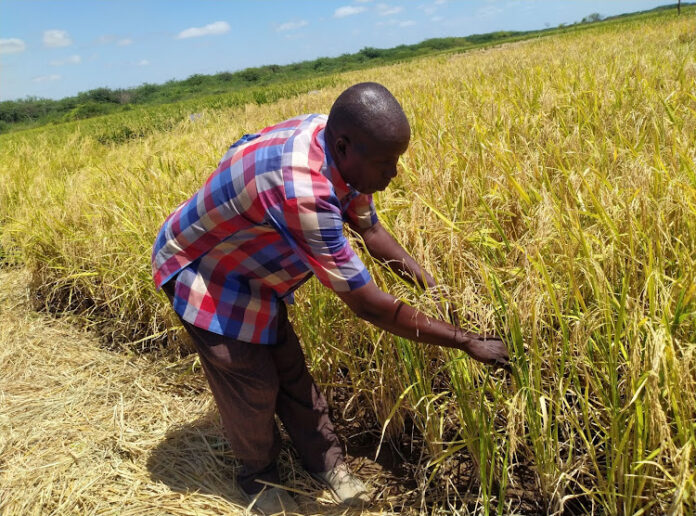John Macharia, a former National Youth Service (NYS) man, transformed his life through rice farming in Bura Irrigation Scheme, Tana River County.
After decades of hard work and perseverance, Macharia’s journey from cotton to maize seed cultivation finally led him to the lucrative world of rice farming, where he found remarkable success.
How SK Macharia lost Sh. 1.2 billion estate to grandson in bitter fight
John Macharia’s story began in 1982 when he started farming in Bura while still serving in the National Youth Service.
Back then, cotton farming was flourishing, and Macharia saw potential in the industry.
He earned a substantial income of Sh36,000 from six acres of cotton in 1984, supplementing his monthly NYS salary.
“In 1984, I was growing cotton in six acres at the irrigation scheme and I would get about Sh36,000 which was good money at that time. Besides, I was also getting a salary of Sh600 per month from the National Youth Service,” Macharia said in a past interview.
However, as cotton prices plummeted, he made a bold decision to shift to maize seed cultivation, which proved profitable for many years.
Joram Mwinamo: Lessons I’ve learned on failure and success from my businesses
In 2017, Macharia was faced with challenges in the maize seed industry which forced him to change his farming focus again.
“Then in 2017, I stopped growing maize seed and shifted to rice farming. This was due to many challenges, including delayed payments from Kenya Seed, among other things. I felt that growing maize was no longer profitable so I shifted to growing rice,” he said.
He ventured into rice farming, starting with six acres of Basmati rice variety in Bura Irrigation Scheme.
Soon, he expanded his cultivation area to 10 acres and embraced the high-yielding Kwamboka rice variety, which matures in just 76 days.
Macharia’s foresight and early adoption of this rice variety proved to be immensely beneficial, both in terms of increased yields and higher profits.
Macharia’s shift to rice farming became a game-changer.
His first harvest of Kwamboka rice earned him a profit of Sh300,000, inspiring him to expand his rice cultivation.
With 10 acres of land, he harvested an impressive 76 bags of rice, generating around half a million shillings.
One key factor that contributed to his success was the reliable market provided by the National Cereals and Produce Board, which purchased rice from farmers at a fair price of Sh43 per kilogram and ensured prompt payment.
However, Macharia believed that the installation of a milling machine would further enhance farmers’ earning potential.
As an experienced farmer, Macharia hoped that the government will invest in the necessary infrastructure, such as milling machines, to support rice farmers and enhance their profitability.
With a ready market and the right support, Bura Irrigation Scheme has the potential to become a thriving hub for rice farming, boosting the local economy and offering opportunities for other aspiring farmers.








